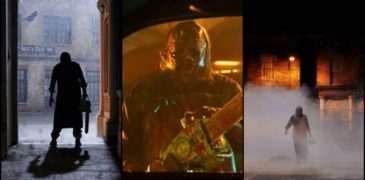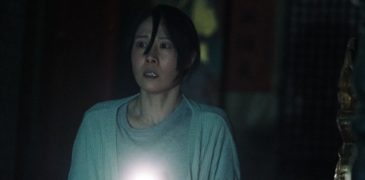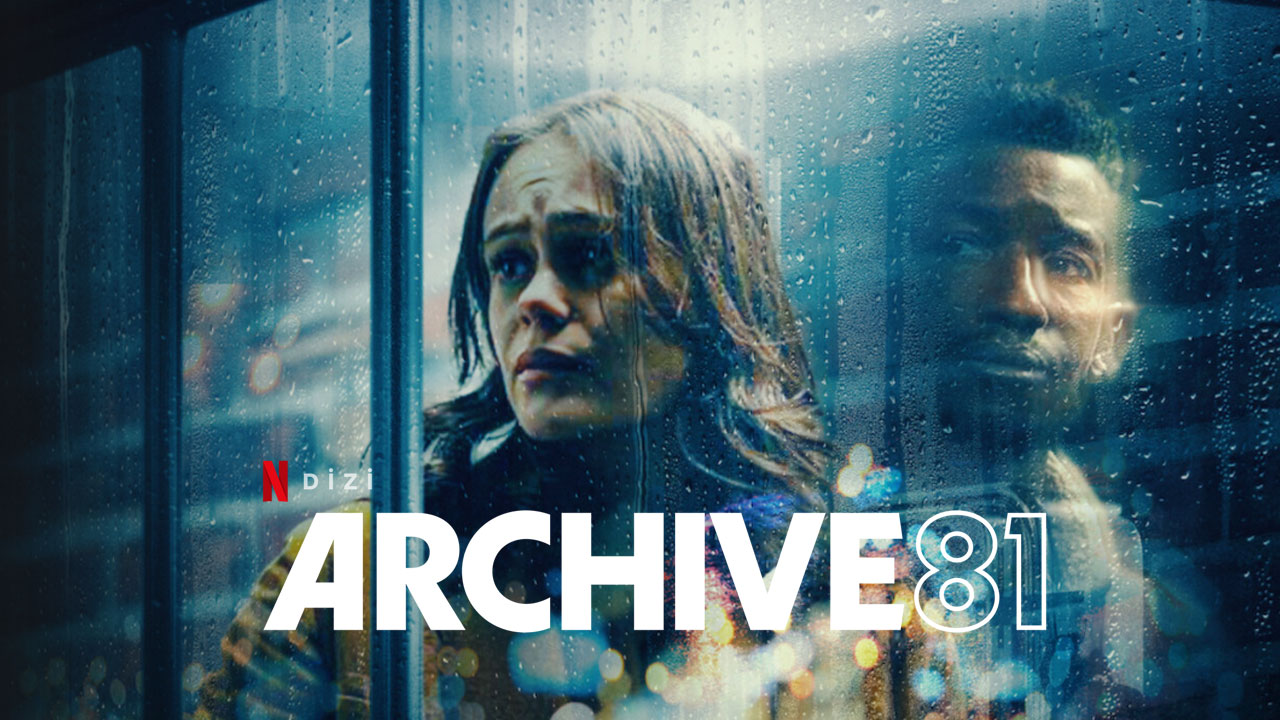
Despite having little promotion budget or recognizable cast to draw interest – Netlflix’s latest horror series, Archive 81, has quickly sky-rocketed to the #1 most-watched American series within its first week of release. Based on the first season of the popular found footage podcast of the same name, Archive 81 is a supernatural thriller that follows two main characters across two timelines.

In the present day, archivist Dan has been hired to restore hundreds of old tapes by the enigmatic millionaire Davenport, way out in the wilderness. We don’t know who Davenport is, or what motivation he could have in wanting these tapes restored. Dan soon makes a series of startling discoveries. As he watches Melody on the tapes, the audience sees her in flashbacks to 1994. Melody is making an investigative film for her doctorate, on what she believes is a sex cult in her apartment building. She quickly finds herself and a young girl named Jess in mortal danger. As Dan views Melody’s tapes about the apartment building and the cult in present day, the two begin communicating with each other through the screen, and Dan believes he may be able to save Melody from the terrible fate she suffered 25 years ago. However, the series doesn’t fully reveal what is actually going on until the end of the season. Mystery is the main hook of the show. Why does Davenport want these tapes (including both VHS and film reels) restored? Why was Melody seeing Dan’s father for therapy? What is really happening in that apartment building, and how is Dan talking to Melody through a TV screen?

The series combines a lot of horror elements, primarily the found footage genre – which is how the podcast on which the series is based operates. The tapes are poor quality, grainy and shaky, similar to the Blair Witch Project or Noroi: The Curse. The series also has a supernatural element, as an unknown entity begins making itself known through the tapes. Also making appearances are elements of body horror, featuring some particularly unsettling scenes in which a medium scratches her own face off, or when Dan finds a rat with only its tail caught in a trap. However, the series is mainly psychological horror, as both heroes are dismissed as being crazy. As the series goes on, both Dan and Melody become aware that something very strange is happening. Both of them are faced with skepticism but believed by their closest friends, but eventually, even those friends become doubtful about their respective mental health.
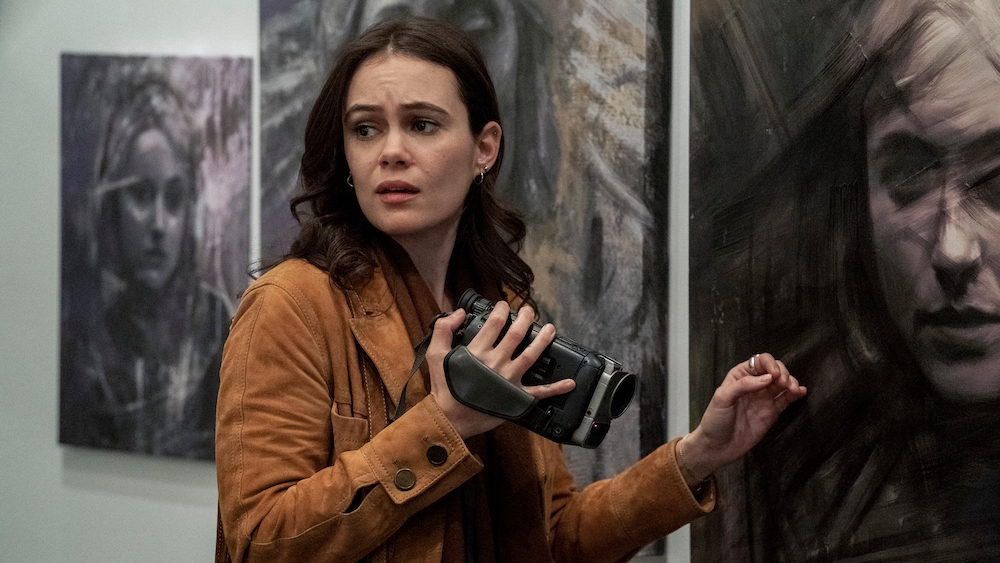
From a technical standpoint, the strongest elements of Archive 81 are the original score, cinematography, and editing. The score employs haunting and looping melodies, with percussive elements that dial up the suspense. The music in this series is reminiscent of a Philip Glass opera or an Ari Aster film, simultaneously atmospheric and emotional. When Melody and Dan begin speaking to each other, both directly into the camera, the audience may feel they themselves are being engaged. The most frightening moments are when a villain reaches through the screen to attack Dan, reminiscent of The Ring or Poltergeist – and much like found footage legend Noroi: The Curse, each episode begins with what looks like a real news sequence or advertisement, creating a sense of realism. In addition to influence from many recent horror smash hits, horror fans will be delighted with the constant allusions to other horror films, such as when Dan’s best friend says, “Don’t go all Jack Torrance on me.” We also see Dan wearing a Fritz Lang shirt. References are continually sprinkled throughout each episode.
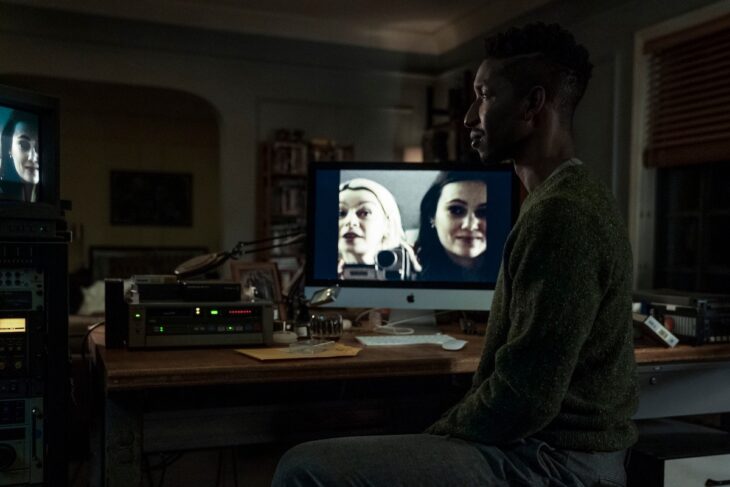
Despite all the elements that make this Netflix serious so captivating, it does have some technical issues. The plot reveals don’t really add up, especially the timelines and age gaps. The acting performances are uneven, especially with Melody. The dialogue frequently feels poorly written for each character, and it’s unclear if it’s the fault of the writing or the acting. For example, the constant swearing feels like it fits with Dan’s best friend, (or even Dan himself) but feels unnatural with Melody. Having so many different horror elements thrown into the mix makes the series feel a bit cluttered, as if the showrunners couldn’t decide which direction to take. While it’s fun, all these elements don’t really add up to more than the sum of their parts. Moreover, horror fans may feel that Archive 81 is ripping off their favorite films. It becomes frustrating that the true plot of this series isn’t revealed until nearly the end, and by then, it feels a bit anti-climactic. Furthermore, on a non-technical note, many fans have expressed outraged that Melody is gay in the podcast but heterosexual in the series.
From a thematic perspective, the takeaway message of the film may be up to the viewer’s interpretation, with religion in particular playing a large role. Horror films centered around religion tend to fall into two camps: the devil is real, and therefore, we need God; or that religion is the real evil. Somehow, Archive 81 seems to express both sentiments. In fact, early on in the series, we hear a clergyman Melody wants to interview state something in his sermons: that it’s up to us to decide how to interpret horror movies, and how to respond to them. Melody was raised Catholic and had a poor experience with it, but the series shies away from the cliched “man of the cloth lost his faith until he saw the possession” trope. Instead, she acknowledges the dangers and evils of the supernatural without abandoning her dislike of Catholicism.
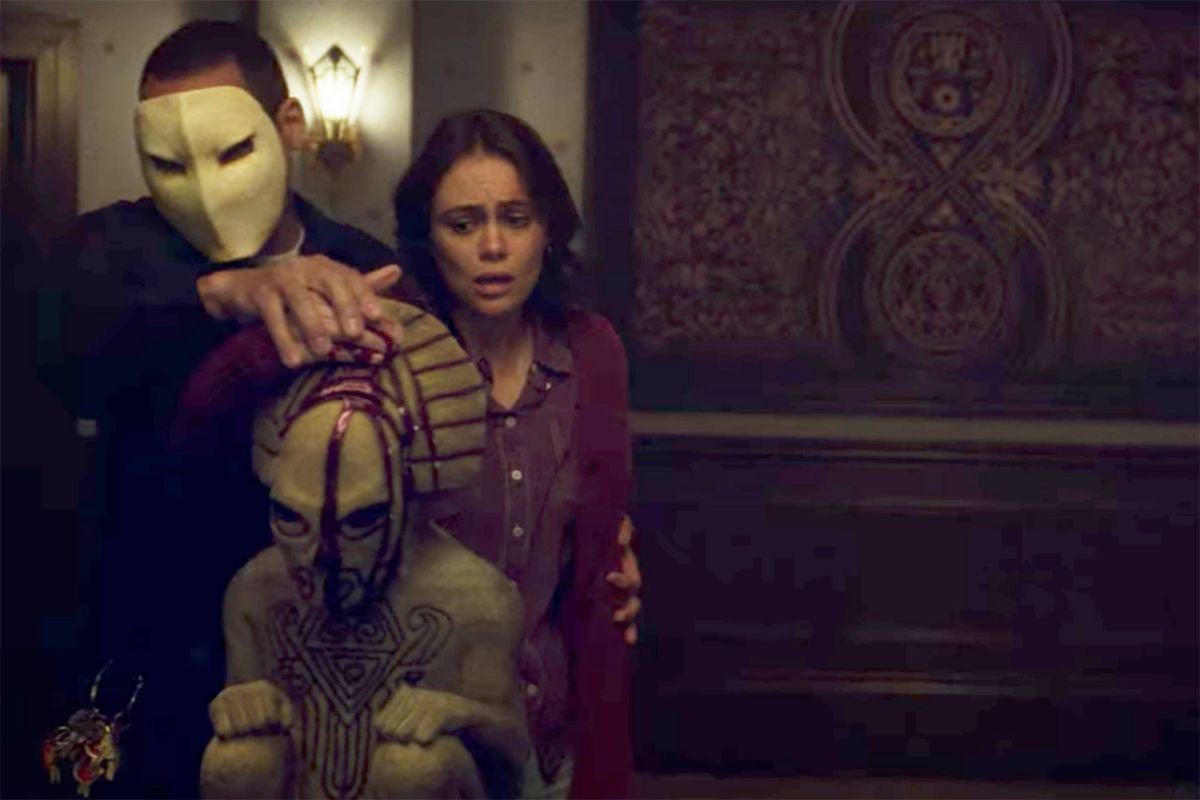
Without giving away the big reveal of what’s really happening near the end of the season, I will say that we learn there is a cult that wants to end human suffering. The woman who starts this cult wants to see her deceased relatives again. There is a brief conversation between her and a minor character that drives the moral takeaway home. She says, with regards to her deceased loved ones, “We’ll all be together again,” to which he responds: “That’s not natural. Lives end, Iris. People die. And there is war, poverty, famine, and injustice. And humanity must find its own way through it.” While the whole “the road to hell is paved with good intentions” trope is also a bit cliché, this moment does feel deeply profound. However, there are multiple ways of interpreting the aforementioned statements. It could be a defense of atheism, that asking a divine being to fix our problems doesn’t work and humans must fix them themselves. Alternatively, it could be a defense of religion, that the devil promises an easy path to everything a person wants, but at a high price, and it’s only through hard work and sacrifice that happiness can be achieved. As the clergyman said early on, it’s up to the viewer to decide.
Overall, there’s a lot to love about Archive 81. It is not only binge-worthy, but also genuinely frightening. The two main characters are likeable, and audiences will be rooting for both of them. The various mysteries add suspense and keep us watching. While the creepy original score and editing cuts between found footage and drama are compelling, it did become frustrating that the real plot wasn’t revealed until nearly the end of the season. After the long build up, some viewers may feel that the payoff was not quite worth in the end, with the series of big reveals in the last two episodes feeling a bit anti-climactic. While not a great series, it’s an excellent weekend binge, with enough to keep horror fans interested for all eight episodes.
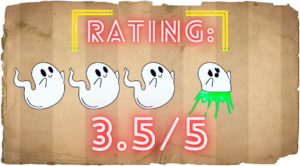
More From Netflix
What constitutes a slasher, and how is a particular slasher franchise defined in an identity? Whilst Netflix’s Texas Chainsaw Massacre is a continuation of the very original, as Halloween (2018)… Life is a Train Wreck In the final days of 2022, most of us were looking toward 2023 with hearts full of hope, and faith that the moment those… Incident in a Ghostland has been popping up on horror fan group pages since its recent release on Netflix, and the reviews are mixed. It seems to be a “love… To say that director Zack Snyder has had one hell of a year would be an incredible understatement, and I mean that in the best way possible. Anyone unfamiliar with… Even though the Asian horror movie craze is not as potent as it was back in the early 2000s, new titles have managed to make their way overseas and have… Let’s jump straight to the point for once: Netflix has largely succeeded in adapting Neil Gaiman’s The Sandman, a popular and critically-acclaimed graphic novel which had been deemed “unfilmable”. With…Texas Chainsaw Massacre (2022) Review – A Modern Satire but Generic Slasher
White Noise (2022) Film Review – Arthouse Existential Horror Comedy
Incident in a Ghostland (2018) Film Review
Army of the Dead (2021) Film Review – Undead Carnage
Incantation (2022) Film Review – An Incredibly Competent Addition To Asian Horror And Found Footage Catalogs
The Sandman Series 1 Review (2022) – A Neil-Perfect Season
Voting member of the Independent Spirit Awards. Charter subscriber to the Criterion Channel. Silent and pre-code horror enthusiast. In my “real” life, I’m a human rights activist, social scientist, and burlesque performer
